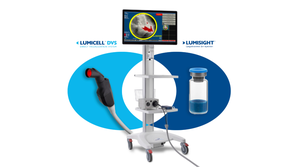In a citizen petition to FDA, the Public Citizen advocacy group asks the agency to withdraw approval and start a recall of Sanofi's Seprafilm surgical barrier device, alleging serious adverse events related to its use.
July 13, 2015

Marie Thibault

Public Citizen, a public advocacy group, wants to see a Sanofi surgical device taken off the market almost 20 years after it received FDA approval. In a citizen petition to FDA, the group requests withdrawal of FDA approval and implementation of a mandatory recall of the Seprafilm Bioresorbable Membrane "on the grounds that the manufacturers has not demonstrated reasonable assurance that the device is safe and effective under its current conditions of use, and there is a reasonable probability that the device will cause serious adverse health consequences and death."
According to the device instructions for use, Seprafilm is an adhesion barrier made from sodium hyaluronate and carboxymethylcellulose that is indicated for use during abdominal and pelvic laparotomies to prevent adhesions. It is manufactured by Sanofi's Genzyme Biosurgery division and was approved by FDA in 1996. Sanofi acquired Genzyme Corporation in 2011.
In a July 7 Public Citizen press release, Dr. Michael Carome, director of Public Citizen's Health Research Group, said, "Seprafilm never should have been approved. There is no evidence that this device achieves any important clinical benefit for patients—but ample evidence showing serious adverse health consequences. The FDA needs to immediately withdraw the approval of Seprafilm and initiate a mandatory recall of the device."
In response to a request for comment, an FDA press officer wrote in an e-mail: "The citizen’s petition is still in the process of being filed with the Agency. We will respond directly to the petitioner."
The public advocacy group takes issue with premarket and postmarket studies of Seprafilm, and says there have been 21 reported deaths in patients who received Seprafilm and 524 adverse events associated with the device, including bowel obstruction, abscess, and inflammatory reaction, among others. Some of those adverse event reports can be found through a Manufacturer and User Facility Device Experience (MAUDE) database search.
One such death was detailed in the press release. Laura Schmitz told Public Citizen that her mother, Jayne Heisner, died from a reaction to Seprafilm: "My mother died after experiencing what her operating physician described as an intense, inflammatory reaction where Seprafilm had been placed during surgery."
There were two premarket clinical studies (Studies 901 and 902) conducted on Seprafilm, but Public Citizen points out that a prinicipal investigator in one of the trials received an FDA warning letter for allegedly not following the blinding requirements of the trial protocol, among other issues. The group also believes that results from a postapproval marketing study (Study 601) led to misleading language on the device's label.
Public Citizen writes that "the existing evidence from studies 902, 901, and 601 does not justify maintaining the product’s approval, because these studies failed to demonstrate that Seprafilm is effective at improving any clinically meaningful endpoint, and two of the studies (901 and 601) indicated that the device increases the risk of serious adverse events. Taken as a whole, these trials failed to demonstrate reasonable assurance that the device is safe or effective under the conditions of use prescribed."
Another issue raised in the citizen petition is what Public Citizen believes is increasing off-label use of Seprafilm in procedures such as Cesarean sections, pediatric surgery, and transabdominal aortic aneurysm surgery, among others. In 2013, Genzyme agreed to pay more than $22 million to settle two Department of Justice lawsuits alleging that company employees taught physicians how to create and inject Seprafilm "slurry," which is not an FDA-approved use of the device.
Regarding the citizen petition, a Sanofi spokesperson wrote in an e-mailed statement, "Sanofi and Genzyme remain committed to the safe and effective use of Seprafilm Adhesion Barrier. We stand behind the clinical trial results and nearly 15 years of post-marketing surveillance data reported to the FDA for Seprafilm. We continue to advise physicians to follow the approved product labeling, including directions for general use."
Enhance your medtech knowledge by attending MEDevice San Diego, September 1–2, 2015, in San Diego. |
Marie Thibault is the associate editor at MD+DI. Reach her at [email protected] and on Twitter @medtechmarie.
[Image courtesy of KIBSRI/FREEDIGITALPHOTOS.NET]
About the Author(s)
You May Also Like


